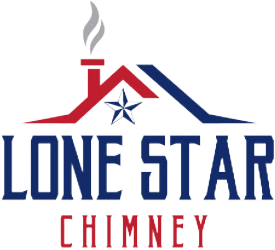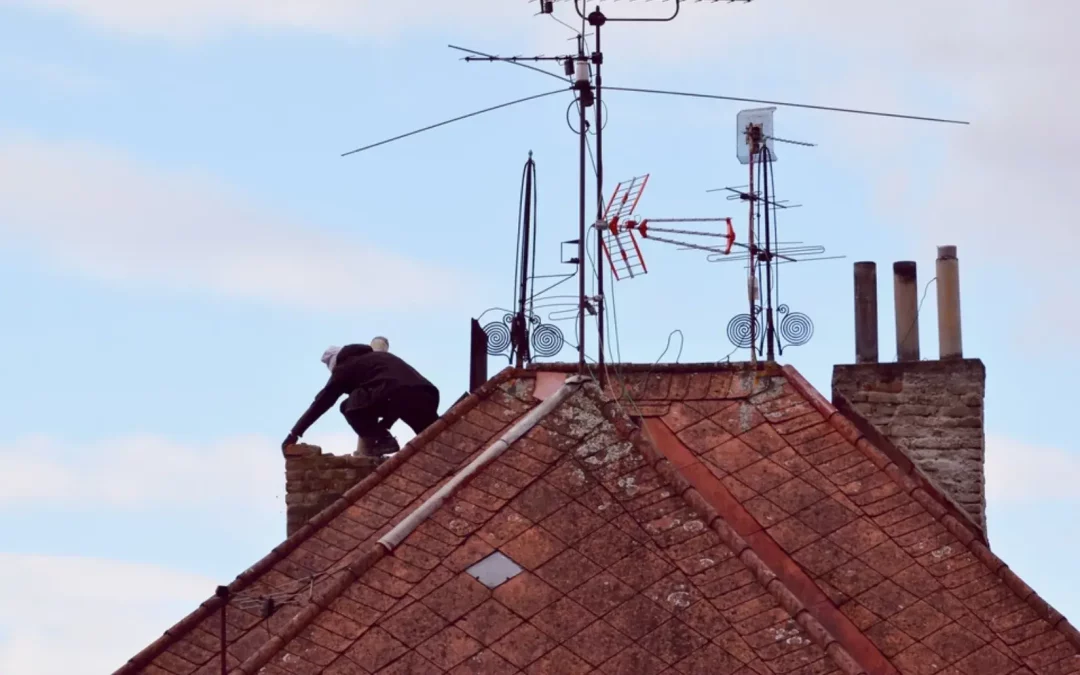Propane fireplaces offer Houston homeowners a perfect blend of convenience and comfort, especially during those surprisingly chilly Texas winters. These efficient heating systems provide warmth without the hassle of traditional wood-burning fireplaces, but they still require regular maintenance and occasional chimney repair to function safely and efficiently. With Houston’s unique climate challenges—from humidity to severe weather—proper fireplace and chimney care becomes even more crucial for longevity and performance.
Many Houston residents don’t realize that neglecting fireplace maintenance can lead to costly chimney repair needs down the road. From broken dampers to cracked liners, chimney issues can compromise your home’s safety and your fireplace’s efficiency. This comprehensive guide explores everything Houston homeowners need to know about maintaining propane fireplaces and addressing chimney repair needs to ensure peak performance year-round.
Understanding Your Propane Fireplace System and Chimney Components
Before diving into maintenance specifics, it’s important to understand the key components of your propane fireplace system and how they interact with your chimney structure. Unlike wood-burning fireplaces, propane units produce different combustion byproducts that interact with chimney components in unique ways.
A typical propane fireplace system consists of:
- Firebox: The main chamber where combustion occurs
- Burner assembly: Controls the flame pattern and gas distribution
- Pilot light or electronic ignition system: Initiates the fire
- Gas line connections: Delivers propane to the fireplace
- Venting system: Channels combustion gases out of your home
- Chimney structure: Houses the venting system and protects it from the elements
The chimney itself contains several crucial components subject to wear and potential chimney repair needs:
- Chimney cap: Prevents rain, debris, and animals from entering
- Flashing: Seals the junction between chimney and roof
- Liner: Protects house structure from heat transfer and contains combustion gases
- Damper: Controls airflow and prevents heat loss when not in use
- Smoke chamber and shelf: Directs exhaust gases up the chimney
Houston’s climate can accelerate wear on these components. High humidity levels can cause metal parts to corrode faster, while severe weather events may damage external chimney structures. Regular inspection of these elements helps identify early signs of deterioration that might require chimney repair.
Seasonal Maintenance Schedule for Houston Homeowners
Given Houston’s distinct seasonal patterns, adapting your propane fireplace maintenance schedule accordingly can prevent many chimney repair issues. While the city experiences milder winters than much of the country, the occasional cold snap makes a well-maintained fireplace essential.
Pre-Season Preparation (September-October)
Before the first cold front arrives, schedule a comprehensive inspection of your propane fireplace and chimney system. Professional technicians should check:
- Gas connections for leaks or corrosion
- Ignition system functionality
- Thermocouple or thermopile condition
- Burner ports for clogs or debris
- External chimney structure for storm damage
- Chimney liner integrity
- Damper operation
This inspection timeline allows adequate time for any necessary chimney repair work before you need to use the fireplace regularly. In Houston’s humid environment, even idle fireplaces can develop issues during the long summer months.
Mid-Season Check (December-January)
During peak usage months, perform a quick visual inspection:
- Check pilot light color (should be blue, not yellow)
- Listen for unusual sounds during operation
- Monitor external chimney for visible damage after storms
- Look for water stains near the chimney or fireplace (may indicate leaks requiring chimney repair)
End-of-Season Care (March-April)
As usage decreases, prepare your system for Houston’s hot, humid summer:
- Have gas connections inspected and possibly capped
- Clean all visible components according to manufacturer guidelines
- Close damper tightly to prevent conditioning loss
- Consider a dehumidifier near the fireplace during particularly humid months
This end-of-season maintenance reduces the likelihood of extensive chimney repair needs when fall returns. It’s particularly important in Houston, where summer humidity can accelerate corrosion of metal components.
Common Chimney Repair Issues for Propane Fireplaces in Houston
Even with diligent maintenance, Houston homes may eventually require chimney repair services. Being aware of common issues can help you identify problems early when repairs are typically less expensive and invasive.
Water Damage and Leaks
Houston’s abundant rainfall makes water-related chimney repair the most common service need. Signs of water damage include:
- Water stains on walls or ceiling near the chimney
- Musty odors when the fireplace is used
- Flaking or peeling masonry
- Rust on visible metal components
- Deteriorated chimney crown or cap
Water infiltration can compromise structural integrity and create ideal conditions for mold growth—a particular concern in Houston’s already humid climate. Proper chimney repair for water issues typically involves:
- Replacing damaged flashing
- Applying waterproof sealants to masonry
- Installing or upgrading chimney caps
- Repairing cracked chimney crowns
- Addressing damaged liners that might allow water penetration
Ventilation Problems
Proper ventilation is crucial for propane fireplace safety. Ventilation issues that may require chimney repair include:
- Backdrafting (smoke and gases entering the home instead of exiting through the chimney)
- Insufficient draft causing poor combustion
- Blocked vents from debris, nests, or other obstructions
These problems are particularly concerning with propane fireplaces, as improper ventilation can lead to carbon monoxide buildup. Professional chimney repair technicians use specialized equipment to identify airflow problems and recommend appropriate solutions.
Liner Damage
Chimney liners protect your home’s structure from heat transfer and contain combustion byproducts. Signs that liner-related chimney repair may be needed include:
- Flaking material visible in the firebox
- White staining on exterior masonry (indicates moisture penetrating the liner)
- Increased heating bills (suggests heat loss through damaged areas)
In Houston’s climate, the freeze-thaw cycle is less common than in northern states, but temperature fluctuations can still stress liner materials over time. Modern relining techniques allow for effective chimney repair without complete reconstruction in many cases.
Professional vs. DIY Chimney Repair: What Houston Homeowners Should Know
When it comes to chimney repair, homeowners often wonder what they can safely handle themselves versus when to call professionals. While certain maintenance tasks are appropriate for DIY enthusiasts, most structural chimney repair work requires professional expertise—particularly for propane systems where safety concerns are paramount.
Safe DIY Maintenance Tasks:
- Cleaning accessible exterior components according to manufacturer instructions
- Performing visual inspections for obvious damage
- Replacing batteries in related carbon monoxide detectors
- Keeping the area around the fireplace clean and free of combustibles
- Checking for visible rust or corrosion on external parts
When to Call Professionals for Chimney Repair:
- Gas connection issues of any kind
- Ventilation problems or backdrafting
- Visible cracks in chimney structure
- Water leaks or moisture problems
- Damaged chimney liners
- Issues with the damper mechanism
- Annual safety inspections (always professional)
Houston homeowners should be particularly cautious about DIY chimney repair attempts on propane systems. Unlike wood-burning fireplaces, propane units involve gas connections that require specialized knowledge and tools to service safely. Additionally, Houston’s building codes and regulations regarding gas appliances must be strictly followed during any chimney repair work.
When selecting a chimney repair professional in Houston, look for:
- Proper licensing for gas appliance work
- Certification from recognized industry organizations
- Experience specifically with propane fireplace systems
- Familiarity with Houston’s climate challenges and building codes
- Comprehensive insurance coverage
- Detailed written estimates for any proposed chimney repair work
The investment in professional chimney repair services is minimal compared to the potential costs of improper repairs—both in terms of future repair needs and, more importantly, family safety.
Extending Your Propane Fireplace Lifespan: Preventative Maintenance to Avoid Chimney Repair
Proactive maintenance can significantly reduce the need for extensive chimney repair over your fireplace’s lifetime. This is especially relevant in Houston, where climate factors create unique challenges for fireplace systems.
Humidity Control Strategies
Houston’s high humidity levels can accelerate corrosion and moisture-related damage to fireplace components. Consider these preventative measures:
- Install a top-quality chimney cap to prevent rain entry
- Use a dehumidifier in rooms with fireplaces during particularly humid months
- Ensure proper ventilation throughout the home
- Schedule more frequent inspections than might be necessary in drier climates
- Apply appropriate moisture barriers during initial installation or major chimney repair projects
These humidity control measures can prevent many common issues that lead to chimney repair needs, particularly rusting of metal components and deterioration of masonry surfaces.
Storm Preparation and Recovery
Houston’s vulnerability to severe weather events makes storm-related chimney repair a common necessity. To minimize damage:
- Have the chimney inspected after major storms, especially hurricanes
- Install hurricane straps or other reinforcements as recommended by chimney repair specialists
- Remove overhanging tree branches that could damage the chimney during storms
- Document your chimney’s condition periodically for insurance purposes
- Address minor storm damage promptly before it escalates into major chimney repair needs
Even seemingly minor storm damage can create entry points for water, leading to more significant problems over time. Post-storm inspections are a wise investment for Houston homeowners.
Efficiency Optimization
An efficiently operating propane fireplace places less stress on components, reducing wear and chimney repair frequency:
- Clean burner ports according to manufacturer recommendations
- Replace gaskets as they show signs of wear
- Adjust air shutters for optimal flame color and pattern
- Ensure proper propane pressure
- Maintain clearances around the unit for proper airflow
Beyond reducing chimney repair needs, these efficiency measures can lower operating costs and improve heating performance during Houston’s chilly periods.
Energy Efficiency Considerations for Propane Fireplaces
While maintenance and chimney repair focus primarily on safety and longevity, energy efficiency deserves attention as well. Modern propane fireplaces can be highly efficient heating sources when properly maintained.
Several factors impact your fireplace’s efficiency:
Heat Output Management
Propane fireplaces typically offer adjustable heat output, allowing homeowners to match energy use to heating needs. In Houston’s variable climate, this flexibility is particularly valuable. Regular maintenance ensures controls work properly, while timely chimney repair preserves the system’s ability to operate at various output levels efficiently.
Thermostat Integration
Many modern propane fireplaces can integrate with home thermostats for automated operation. This integration reduces energy waste by preventing overheating and maintaining consistent temperatures. During professional chimney repair visits, ask technicians to check thermostat connections and calibrations for optimal performance.
Supplemental Heating Strategies
Used strategically, propane fireplaces can reduce overall heating costs by providing zone heating—warming only occupied areas rather than the entire home. This approach is ideal for Houston’s mild winters. Proper maintenance and chimney repair ensure your fireplace can fulfill this role effectively, while damaged systems may consume excess fuel without delivering adequate heat.
Safety Protocols for Propane Fireplace Operation
No discussion of propane fireplace maintenance would be complete without addressing safety considerations. While chimney repair addresses structural integrity, safe operation practices protect your household on a daily basis.
Carbon Monoxide Safety
Propane combustion produces carbon monoxide, making proper ventilation essential:
- Install carbon monoxide detectors near the fireplace and in sleeping areas
- Test detectors monthly and replace batteries semi-annually
- Know the symptoms of carbon monoxide exposure (headache, dizziness, nausea)
- Never operate a fireplace with known ventilation issues requiring chimney repair
- Ensure furniture and decorations don’t obstruct airflow around the unit
Emergency Preparedness
Houston homeowners should prepare for fireplace emergencies:
- Know the location of the emergency gas shutoff valve
- Keep a suitable fire extinguisher accessible
- Develop a family emergency plan
- Maintain clear pathways around the fireplace
- Have emergency chimney repair contacts readily available
Safety considerations should always take precedence over convenience or aesthetics when making decisions about fireplace operation and maintenance.
Aesthetic Maintenance Without Compromising Function
Many Houston homeowners choose propane fireplaces not just for heating but also as design focal points. Balancing aesthetic considerations with functional needs, including chimney repair, requires thoughtful planning.
Cleaning Viewing Areas
For fireplaces with glass panels:
- Wait until completely cool before cleaning
- Use only manufacturer-recommended cleaning products
- Check for cracks or damages that might indicate needed chimney repair
- Remove buildup regularly to maintain visibility and monitor flame condition
Decorative Element Care
For units with logs, stones, or other decorative elements:
- Follow placement guidelines precisely—improper positioning can affect combustion
- Clean according to manufacturer instructions
- Replace damaged elements promptly
- During chimney repair visits, have professionals check decorative element conditions
Surround Maintenance
The materials surrounding your fireplace require specific care:
- Clean stone or brick with appropriate non-abrasive cleaners
- Inspect for cracks that might indicate settling or heat damage
- Ensure mantels maintain proper clearance from heat sources
- Coordinate any surround updates with necessary chimney repair work
With proper attention to both aesthetics and function, your propane fireplace can remain a beautiful and reliable feature in your Houston home for many years.
Future Trends in Propane Fireplace Technology and Chimney Repair
The fireplace industry continues to evolve, with new technologies emerging that may influence maintenance practices and chimney repair approaches. Houston homeowners considering upgrades or replacements should be aware of these developments.
Smart Integration
Newer propane fireplace models offer enhanced connectivity:
- Smartphone controls for remote operation
- Integration with home automation systems
- Diagnostic capabilities that can alert homeowners to potential issues before major chimney repair is needed
- Usage tracking for more efficient operation
These smart features don’t eliminate maintenance needs but can make them more predictable and manageable.
Enhanced Safety Features
Safety innovations include:
- Oxygen depletion sensors
- Automatic shutoff systems for various fault conditions
- Better flame monitoring technology
- Improved ventilation designs that reduce chimney repair frequency
When upgrading your system, these safety enhancements deserve consideration alongside aesthetic and efficiency factors.
Sustainable Materials
Modern chimney repair increasingly utilizes sustainable materials:
- Longer-lasting liners requiring less frequent replacement
- Environmentally friendly sealants and cleaning products
- Energy-efficient components that reduce carbon footprint
- Water conservation features for cleaning processes
These sustainable approaches align well with growing environmental awareness among Houston homeowners.
Final Thoughts on Propane Fireplace Maintenance and Chimney Repair
Maintaining a propane fireplace in Houston’s unique climate requires attention to detail and awareness of local factors affecting performance and longevity. Regular maintenance prevents many common issues, while prompt chimney repair addresses inevitable wear before it compromises safety or function.
By following the maintenance schedule outlined above, understanding when professional chimney repair is necessary, and staying informed about best practices, Houston homeowners can enjoy the comfort and convenience of their propane fireplaces for many years. Remember that investments in proper maintenance and timely chimney repair typically pay dividends through extended system life, improved efficiency, and most importantly, enhanced safety for your household.
The effort put into caring for your propane fireplace and addressing chimney repair needs not only protects your investment but also ensures this wonderful home feature continues to provide the warmth and ambiance that make Houston’s occasional cold snaps more bearable and your living space more inviting year-round.
Read more:


